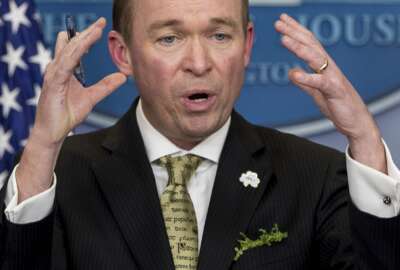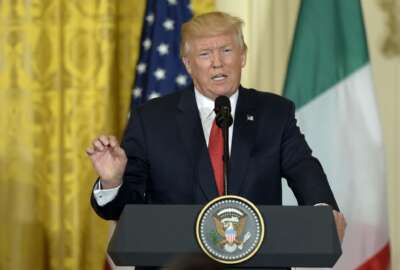
Still no talks on the big budget
Nobody seems to be paying attention to the bigger picture of where federal finances are headed.
In aviation, automation puts pilots at risk of a phenomenon known as system monitor mode. They watch what’s going on but don’t participate in it because they trust the automation too much. The literature is full of accident and near-disasters when pilots lost touch with what they were supposed to be doing. They forget to turn off the autopilot when needed and grasp the stick.
The issue became apparent in the late 1970s, but it persists. Kind of like the federal deficit and growing national debt.
That’s what Congress is doing this week, going into system monitor mode. Oh, they’ll argue dramatically about this or that item. The Wall. Funding for the Affordable Care Act. How many planes and ships. Most likely they’ll reach a messy compromise on 2017 spending, either an omnibus or the fallback of a rest-of-year continuing resolution.
I don’t mean to say the arguments over program-by-program funding are trivial. They’re important. Citizens care about them and vote for people they think will represent what they care about.
But nobody seems to be paying attention to the bigger picture of where federal finances are headed. Almost nobody. The Congressional Budget Office’s homepage states, “If current laws remained generally unchanged, the United States would face steadily increasing federal budget deficits and debt over the next 30 years — reaching the highest level of debt relative to GDP ever experienced in this country.” It basically comes down to an aging population, rising demands on Social Security and runaway Medicaid costs. That is, factors everyone knows about.
Plus, interest on the debt we already have will cost more and more because of interest rates and the fact that each yearly deficit gets added to the debt. So there is actual debt growth each year from deficits, and some sort of actuarial future debt based on straight-line projections of what people alive now will be entitled to.
If you like numbers, you’ll love this CBO report.
Is anyone in Congress even thinking about this “mandatory spending?” Or the White House? Because it’s come to be considered mandatory, Congress and each and every White House keep the budget debates confined to the “discretionary” part of the budget — the trillion or so dollars that pays for federal employees, Defense Department, and grants and contracts from the agencies. In reality all spending is “discretionary” in that Congress can change policies on any of it any time it wishes. If they think deficits matter and if they think the future debt levels are of concern, they should at least talk about it.
There’s a theory in foreign policy. If you can’t solve a local crisis, try and solve a big regional one, because the small ones usually operate in a larger context. Similarly, rather than quibbling over the last 1 percent or 2 percent of the federal “discretionary” budget, wouldn’t it be great if Congress could take on the big, long-term challenge?
Copyright © 2024 Federal News Network. All rights reserved. This website is not intended for users located within the European Economic Area.
Tom Temin is host of the Federal Drive and has been providing insight on federal technology and management issues for more than 30 years.
Follow @tteminWFED






